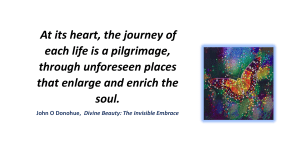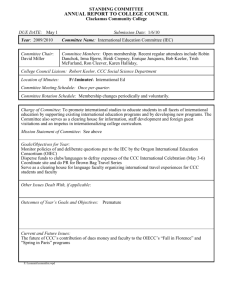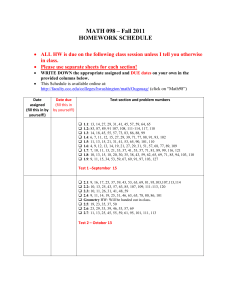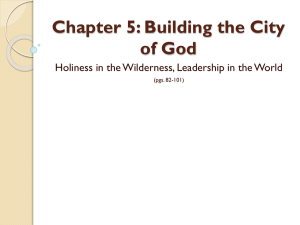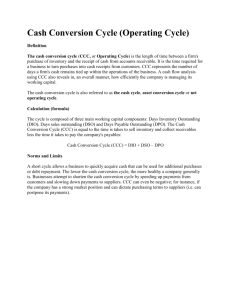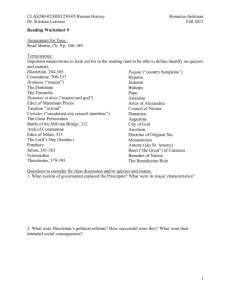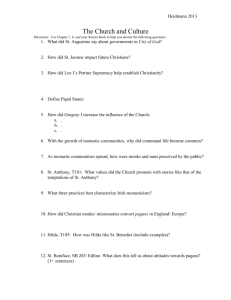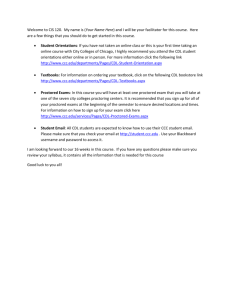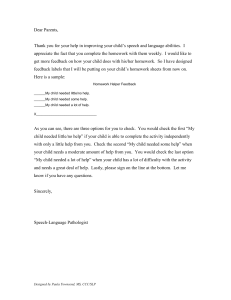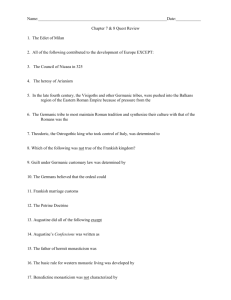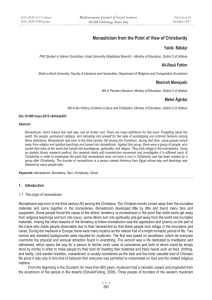Acceptance and Liberty 312 - 1000 AD
advertisement
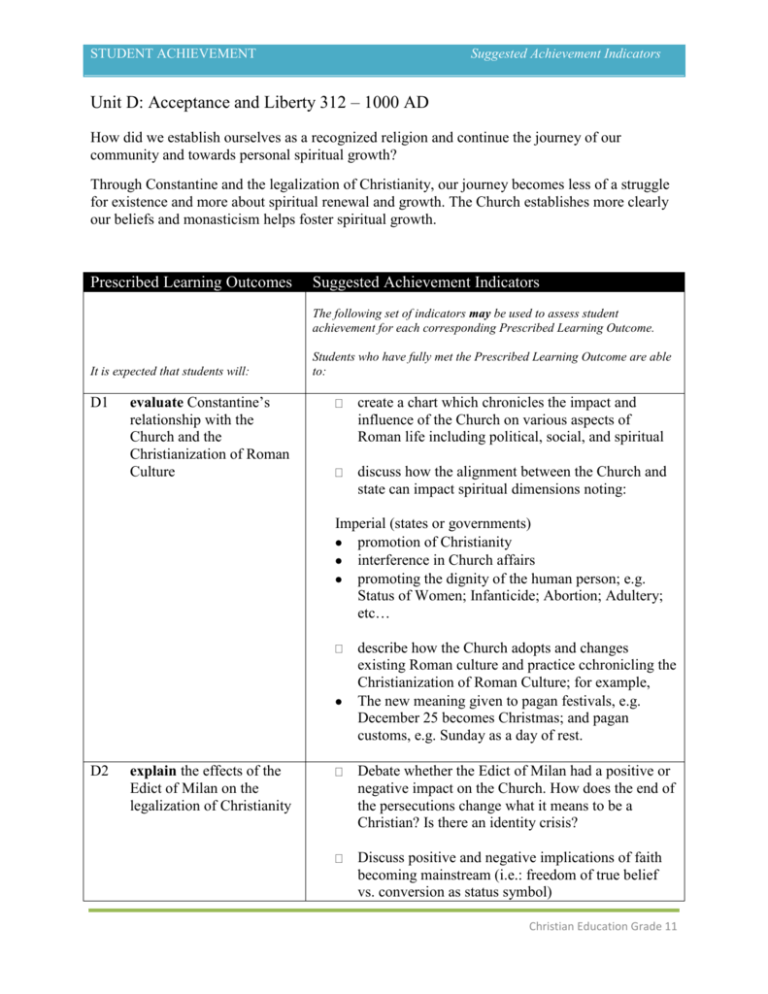
STUDENT ACHIEVEMENT Suggested Achievement Indicators Unit D: Acceptance and Liberty 312 – 1000 AD How did we establish ourselves as a recognized religion and continue the journey of our community and towards personal spiritual growth? Through Constantine and the legalization of Christianity, our journey becomes less of a struggle for existence and more about spiritual renewal and growth. The Church establishes more clearly our beliefs and monasticism helps foster spiritual growth. Prescribed Learning Outcomes Suggested Achievement Indicators The following set of indicators may be used to assess student achievement for each corresponding Prescribed Learning Outcome. It is expected that students will: D1 evaluate Constantine’s relationship with the Church and the Christianization of Roman Culture Students who have fully met the Prescribed Learning Outcome are able to: create a chart which chronicles the impact and influence of the Church on various aspects of Roman life including political, social, and spiritual discuss how the alignment between the Church and state can impact spiritual dimensions noting: Imperial (states or governments) promotion of Christianity interference in Church affairs promoting the dignity of the human person; e.g. Status of Women; Infanticide; Abortion; Adultery; etc… describe how the Church adopts and changes existing Roman culture and practice cchronicling the Christianization of Roman Culture; for example, The new meaning given to pagan festivals, e.g. December 25 becomes Christmas; and pagan customs, e.g. Sunday as a day of rest. D2 explain the effects of the Edict of Milan on the legalization of Christianity Debate whether the Edict of Milan had a positive or negative impact on the Church. How does the end of the persecutions change what it means to be a Christian? Is there an identity crisis? Discuss positive and negative implications of faith becoming mainstream (i.e.: freedom of true belief vs. conversion as status symbol) Christian Education Grade 11 STUDENT ACHIEVEMENT Suggested Achievement Indicators D3 relate the legalization of Christianity with the flourishing of theological debate concerning the doctrines of Christology and the Trinity Create a Venn diagram relating theological doctrines pre and post Edict of Milan Christology: Nature and Person of Jesus (YC1 72-79. CCC 470) Definition of Trinity (YC 35-39; CCC 253) Justin Martyr St. Augustine Celtic Triquetra symbol Trinity Shield D4 define the terms heresy and heretic (CCC 2089) Brainstorm with students their understanding of heresy and heretics – build on their knowledge to create understanding of how the Church sees these and deals with them Research a heresy and explain why it was seen as such (YC 356, 357; CCC 2089) D5 explore the Church’s reaction to heresy in this period and the development of Creeds compare the differences between the two Creeds (YC 28; CCC 285 and YC 29; CCC 195), identifying which statements respond directly to the heresies of Gnosticism and Arianism and how these statements of faith affirm our beliefs D6 define: monasticism (CCC 1734) Examine how balance in all aspects of life help create a well-rounded person, and explore how monastic living tried to impart/promote balance in the lives of its participants (CCC 1734). Evolution of isolation to community (clarify) “Pray and Work” Poverty, Chastity and Obedience = Self-Denial Reflect on the importance of self denial, and why you would engage in this form of exercise? E.g. temporarily like with Lent, or permanently as in joining a religious order in response to a call to vocation. D7 1 identify the factors that led to the development of monasticism and its popularity as one response to being a Christian. List exterior influences on our own lives that impact our ability to focus on spirituality, and compare how Christians at the time turned towards monasticism to help them reconnect with their spiritualism and compare to the influences that led to monasticism’s development originally YC YouCat Christian Education Grade 11 STUDENT ACHIEVEMENT Suggested Achievement Indicators Explore how some Christians suffered an identity crisis from the legalization of Christianity; which led to the establishment of monasticism Reflect upon the impact of the invasion of Germanic Arian Christians) Design your own faith community (rules and lifestyle), justifying the choices you make. (i.e.: Amish communities) D8 compare the role of different monastic movements led by key figures who defined what it means to be Catholic like: St. Anthony of Egypt St. Benedict of Nursia recount St. Augustine’s conversion experience (as described in The Confessions) and his role as a defender of the Faith (an apologist) Have students research different monastic traditions (St. Benedict of Nursia) and desert fathers (St. Anthony of Egypt) and present their findings to the class in the form of a Venn diagram or T-chart or in an oral or visual presentation D10 illustrate the positive contributions of Benedictine Monasticism to Western Civilization Have students research and present how monastic traditions shaped our world and continue to impact our lives and faith development; for example, Illuminated manuscripts (the preservation of learning) Create an illuminated manuscript of your favorite bible passage Farming and Vineyards (the development of agricultural practices) Gregorian Chant (liturgical music) Medicine/Alcohol (promotion of scientific developments) Research modern vestiges of monastic practices and products D9 Compare St. Augustine’s conversion to another Catholic individual emphasizing their personal encounter with Christ Debate Donatism, Manicheanism and/or Pelagianism Christian Education Grade 11
